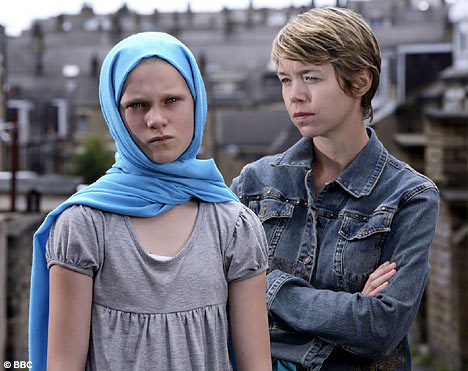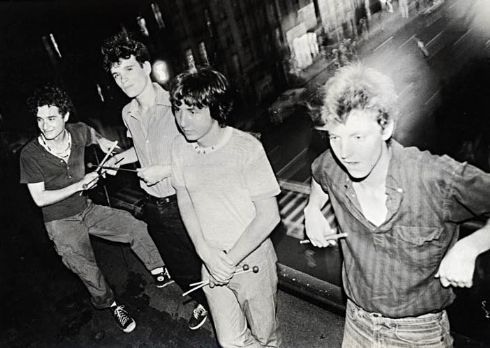March 29, 2008
Me on Paul Morley on Cory Arcangel.... (being in part my belated contribution to the pseudomodernist discussion).
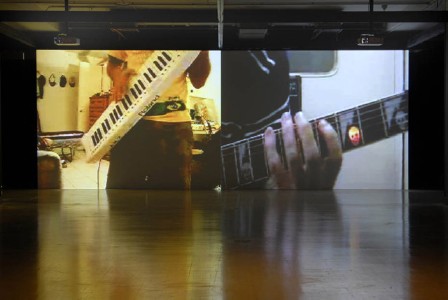
March 11, 2008
White out
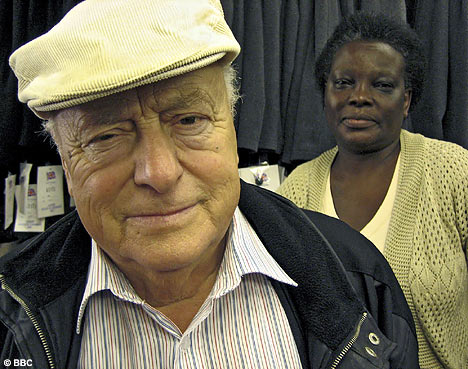
Owen is right to draw attention to these two pieces attacking the BBC's White season, but I'm not sure that either go far enough in locating what was so pernicious about it. The crucial line comes in the New Statesman piece: 'The BBC has made a grave error in locating the problems of Britain's poorest and most pressurised people in race rather than class.' Yet the displacement from class to race is more than an error; it is part of a logic - an ethnologic - that substitutes ethnicity for class. While systematic, this logic is best understood in terms of dreamwork, with all of the telling elisions, substitutions and compressions that psychoanalysis has taught us to be alert to. The most revelatory compression is the title of the season itself: a season ostensibly devoted to the 'white working class' ends up being called 'White', as if 'white' and 'working class' are synonymous. This identification - this conversion, precisely, of class into 'identity' - has strange implications. Is there no non-white working class? And are the upper and middle classes not white? And in a time when ethnic discontent is as likely to be organized around religion and nationality as skin colour, what purchase does the category of 'whiteness' have even on current ethnic resentments?
It ought to be obvious that it is not insofar as they are 'white' that the working class has been disappeared from British culture; since, for all the gestures towards multiculturalism and diversity in Britain, being white remains pervasively normative. Nor is it the case that British culture is bereft of representations of working class life, even if, as the Socialist Worker piece complains, those representations are seldom anything other than hackneyed. (The problem might actually be the reverse: that the middle class control media representation without themselves being subject to even a distorting representation; they remain for the most part an offscreen voice, like the Big (Br)other producers, heard but not seen, who orchestrate a working class freak show from behind the scenes.)
Ethnicization spirits away class in favour of categories that are made to appear natural. The Far Right have profited from this, but New Labour has had its own reasons to collude with it. In addition to fitting New Labour's intrinsic suspicion of working class cultures, ethnicizing the working class has clear strategic benefits. It obstructs the possibility of class solidarity between indigenous British workers and immigrant labour by positing the two groups as competitors for resources whilst deflecting attention from the reasons that resources are scarce in the first place. It is far more convenient for New Labour to have a disenfranchised British-born worker complaining that their council houses have been taken by immigrants rather than asking why so few council houses have been built in the last decade. The documentary on Powell claimed to be soberly analysing the 'Rivers of Blood' speech for the first time, as if Powell's ideas are unspeakable. But while no front-line politician would today be so impolitic to publicly talk of 'wide-grinning piccaninnies', as Powell did, few dare speak in favour of immigration, and even fewer talk about class, the real unmentionable in mainstream politics now.
A refreshingly honest perspective on all this was provided by Kelvin Mackenzie, speaking on the Andrew Marr show at the weekend. MacKenzie was doggedly keeping faith with a 'trickle-down theory' of economics, which whilst totally discredited is still widely treated - not least by New Labour - as if it were true. A Spitting Image puppet from an another era, Mackenzie brayed that super rich 'non domiciles' should not be 'squeezed', because they are 'wealth creators'. It is the poor who are the problem. If only they could be removed from London, then everything would be fine. It's a fantasy that is telling in its very incoherence - who would do all the menial labour in a city populated only by the hyper-affluent? In any case, the working class has already been symbolically eliminated, whited out, a situation that the White season exacerbated rather than addressed.
March 06, 2008
March 03, 2008

Savage Messiah now has a website...
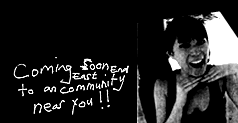
... a London labyrinth...
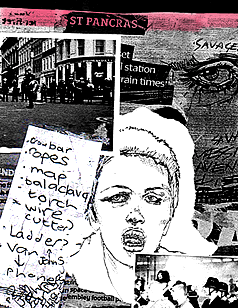
... and anti-2012 vortex...
speaking of which, see also this...
Not unrelated to the above:
Monday 12th May
12:00 - 18:00 - SYMPOSIUM
Museum of Garden History
HAUNTOLOGY NOW!
In the past two years, the concept of ‘hauntology’ has emerged as a name for the zeitgeist. The shades of the past become more vivid than anything turned up by the present.
The spirit of the times is itself spectral. Faced with the apparent triumph of global Capital and the collapse of cultural innovation, artists and critics impatient with postmodern culture’s ‘nostalgia mode’ are forced back to a time before the End of History. They engage in mourning and melancholia for what has disappeared and what never came to be. Everyday life becomes ghostly… a saturated culture is unable to forget that things were not always like this.
Coined by Derrida in his Spectres Of Marx, ‘hauntology’ now has an unlife of its own. It is in relation to sound, in particular, that ‘hauntology’ has gained its second – or should that be third life.
Recent releases by Burial, the Ghost Box label, Mordant Music, The Caretaker, Philip Jeck, Gavin Bryars and Chris Watson have in their different ways exemplified a hauntological sensibility. The revival of attention upon the post-vinyl status of groups like Joy Division, The Gang of Four, The Fall etc. presents a parallel narrative that conditions development in the present.
This May 12 event will be the first to deal with the relation between sound and hauntology, and will focus in particular on the role of space in generating hauntological effects. Why do certain places retain the traces of past sonic events? Why is so much hauntological music tied up with particular spaces? What has the disappearance of the concept of public space to do with hauntology?
The day will be divided into afternoon and evening sessions. The afternoon will be devoted to theoretical explorations of sonic hauntology, with presentations by Mark Fisher (The Wire, k-punk weblog), Jon Wozencroft (Touch, Royal College of Art), Paul Devereux (author, researcher into Archaeoacoustics, Royal College of Art), Christopher Woodward (Director of the Museum of Garden History) and Steve Goodman, better known as Kode9 (University of East London). The evening will be given over to performances and interventions, with The Caretaker, Kode9 and The Spaceape and Philip Jeck headlining. £8
Monday 12th May
20:00 - PERFORMANCE
KODE9 & THE SPACEAPE
THE CARETAKER (aka V/VM)
PHILIP JECK
A night of amazing artists across multiple genres (Dubstep, alternative electronica/sampladelica, multimedia composition etc) in whose work can be seen a sense of haunting nostalgia. Performances will start at 8.30pm. £12
A combined ticket for both Monday 12th May events is available for £15 through the Museum of Garden History box office only.
For more information on Touch please visit www.touchmusic.org.uk
Festival Pass: £38. Only available through the Museum of Garden History box office.
Box Office:
Ticketweb: 08700 600 100 / www.ticketweb.co.uk
See Tickets: 0870 264 3333 / www.seetickets.com
We Got Tickets (internet only, but save on postage fees): www.wegottickets.com
Tickets also available through the Museum - 020 7401 8865
